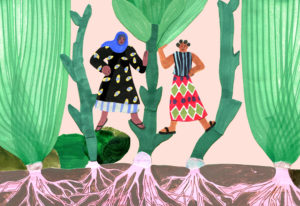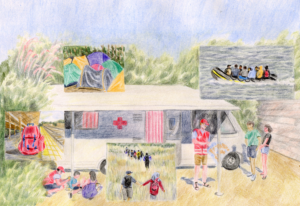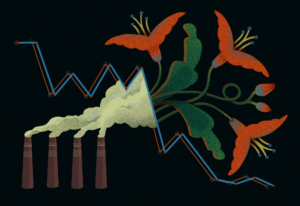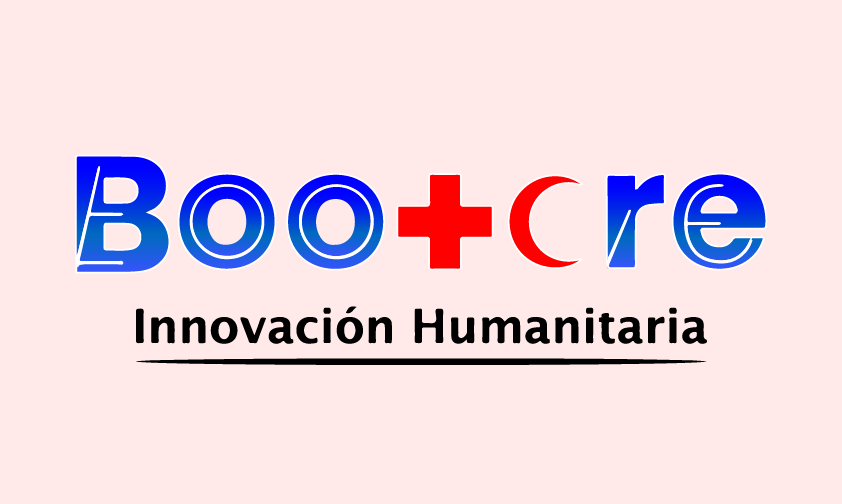
Description
BOOTCRE is a space for humanitarian innovation bootcamps or hackathons destined to the acceleration of innovative, viable, low-cost, high-impact, easily replicable and scalable projects. Each solution passes through a mentoring and development stage with experts from the Ecuadorian Red Cross as well as other organizations. These acceleration events last between one and three consecutive days of work.
Context
The Ecuadorian Red Cross, like other National Societies, channels its humanitarian action through projects aimed at responding to different social challenges. In the past few years, however, the majority of institutional projects have directed their focus to emergencies, leaving prevention and development projects aside. Furthermore, the vast majority of projects that are implemented in each community are developed by technicians, where the contribution and experience of both the volunteers and the communities are not taken into account.
As part of the implementation of the Training and Innovation System (SIFI), the Ecuadorian Red Cross put together a national bootcamp as a starting point for its innovation process. Although the event was unable to take place as planned due to the COVID-19 pandemic, the team was able to rethink and adapt BOOTCRE to be carried out virtually.
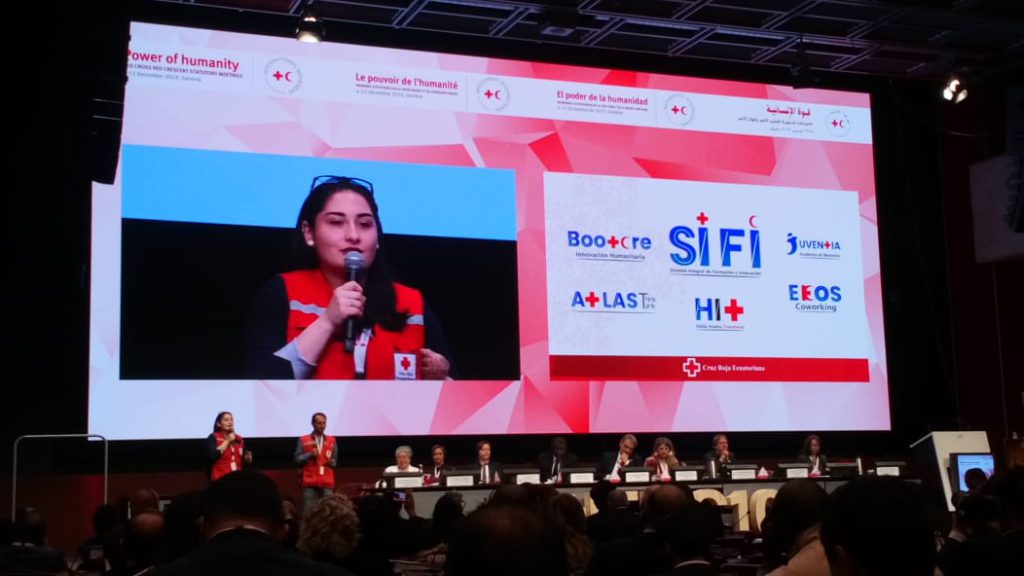
Technical details & Operations
BOOTCRE seeks to trigger systematic change within each community as well as the National Society through reflection, conversation and action. The primary objective is to provide tools and methodologies to those who strive for social change, thus enhancing their ability to positively impact lives. It is designed for anyone who has an idea and wants to pursue it, regardless of age, experience or professional profile. BOOTCRE aspires to encourage the conception of innovative ideas to solve specific problems, fulfilling the role of incubator and accelerator of projects.
Characteristics:
- Poses problems to participants, not solutions.
- Counts on expert mentors across a variety of branches
- Promotes the multidisciplinarity of the teams.
- Fosters an environment of creativity, innovation and collaboration.
- Intensive days of practical work.
- Provides easy access to valuable information.
- Encourages collaborative work with other organizations.
Methodology:
- The hackathon presents a challenge that responds to the Sustainable Development Goals and the IFRC’s Stategy 2030.
- An open application process is established and directed to all members of the National Society, enrolling in teams of a minimum of 3 and a maximum of 5 people.
- The hackathons last between one and three days of consecutive work.
- The participating teams are provided with material and technological resources.
- Throughout the duration of the event, the teams receive the support and mentoring of experts across a variety of branches.
- After the event is over, all teams are offered the opportunity to continue their projects in Meraki, the Ecuadorian Red Cross coworking space.
- Three winning projects undergo a special mentoring process to represent the National Society in innovation ecosystem events.
Deployment & Impact
So far, three virtual editions of BOOTCRE have taken place, generating a portfolio of 35 initiatives designed by volunteers of the Ecuadorian Red Cross:
- BOOTCRE Climate: Red Edition lasted 12 hours and counted on the participation of 60 volunteers divided into 13 teams, each developing a project of their own. The event had the support of the IFRC, Zamorano University and the Climate Change Reference Center. This edition was carried out with the intention of generating initiatives to represent the Ecuadorian Red Cross in the global innovation challenge CLIMATE: RED of the IFRC. Two of the initiatives developed were selected as finalists in the challenge; “SHAMUK,” one of the three winners, will begin its implementation in the second quarter of 2021.
- BOOTCRE Entrepreneurship Edition lasted a total of three days and welcomed 50 volunteers divided into 12 teams, resulting in 12 projects. This edition counted on the support of the Ecuadorian Corporation for the Development of Research and Academia (CEDIA), Salesian Polytechnic University, EMPRENDEC, CUTE, BioConfy, JCI Cuenca, IFRC Livelihood Reference Center, Crisfe Foundation, Vivamus Foundation, 21 Innovation Accelerator of the French Red Cross and was funded by the German Red Cross. The participants of this edition were included in the social innovation training process organized by Play Ground and Learning by Helping.
- BOOTCRE Discrimination and Violence Challenge lasted 12 hours and welcomed 44 volunteers divided into 10 teams, developing a total of 10 projects. This event was supported by the German Agency for International Cooperation (GIZ) as well as the IFRC. The winning team of this initiative represents the Ecuadorian Red Cross in the PISSCA innovation convention of the French Embassy in Ecuador.
